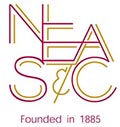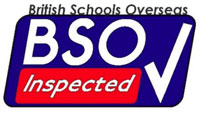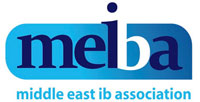Accreditations and Affiliations
Accreditation is the process used to ensure that schools meet and maintain international standards of quality and integrity regarding academics, administration and related services.
All Taaleem schools will apply to become accredited by the Council of International Schools (CIS), and some of our schools also attain authorisation and accreditation from the International Baccalaureate (IB) and the New England Association of Schools and Colleges (NEASC), all global leaders in this field. Our British schools are also inspected and rated by British Schools Overseas (BSO), who are endorsed by the Department for Education (DfE) in London, and follow the Independent Schools Inspectorate (ISI) system.
International Baccalaureate

To become an IB World School, the school must complete three comprehensive stages and the process takes at least three years to complete. The stages include an IB Trial Implementation period of three years, and at the beginning of the third year a thorough consultation visit from the IB team is carried out. The IB team will write a report based on the school’s implementation progress and suggest a date for an Authorisation Visit. The purpose of this visit is to consult the individuals involved in the implementation of the programme and to evaluate the school’s preparedness, commitment and ability to deliver the programme. The visiting team will conclude the process by producing an Authorisation Visit report and authorisation is ultimately decided by the IB Director General based on the reports and recommendations.
Following authorisation, schools receive regular evaluation visits from IB teams to ensure that the educational standards of the programme are being maintained and developed.
There are four programmes to the IB curriculum: the Primary Years Programme (PYP), the Middle Years Programme (MYP), the Diploma Programme (DP) and the IB’s Career-related Programme (IBCP).
Council of International Schools

These initial two steps are followed by a Team Visit by experienced teachers from other schools to assist in an objective assessment of the conclusions of the Self-Study, and the process is concluded by a decision by the CIS Board of Trustees for accreditation based on review of the entire process.
New England Association of Schools and Colleges

The NEASC was founded in 1885, and is the United States’ oldest accrediting association. The NEASC accreditation is a progressive ten-year cycle consisting of three main stages. The first stage is the Self-Study, whereby goals are set for school improvement through a detailed analysis of all aspects of school practices and philosophies and compliance with the NEASC standards by school staff, Governing Body members, as well as some input from parents and students. This school then hosts a Visiting Committee of educators from other member schools appointed by the NEASC for Peer Review, where 6 to 12 teachers validate the Self-Study, independently assess the school’s compliance with the standards and then submit a report to the school and the commission with commendations and recommendations for accreditation. After a school receives accreditation, the school will receive a follow-up visit monitored by a commission of elected peers and overseen by professional staff to ensure that planned and prescribed institutional change is accomplished.
British Schools Overseas

Our Dubai British School was rated 'Outstanding' by BSO, view the report here.
Middle East IB Association (MEIBA) of Schools

MEIBA is the Middle East IB Association of Schools. Countries included in the Middle East are generally within the IB Africa, Europe, Middle East (IBAEM) region. Membership is open to all Middle Eastern schools which are recognised as authorised International Baccalaureate (IB) World Schools or are in the process of applying to become IB World Schools.
The aims of MEIBA are as follows:
a) To provide help and support to schools and institutions of education within the Middle East which offer, or are considering offering the IB.
b) To assist in the promotion of the IB and its objectives.
c) To act as a forum identifying common concerns within the region which would then be communicated to IB through the Regional Office of IBAEM.














